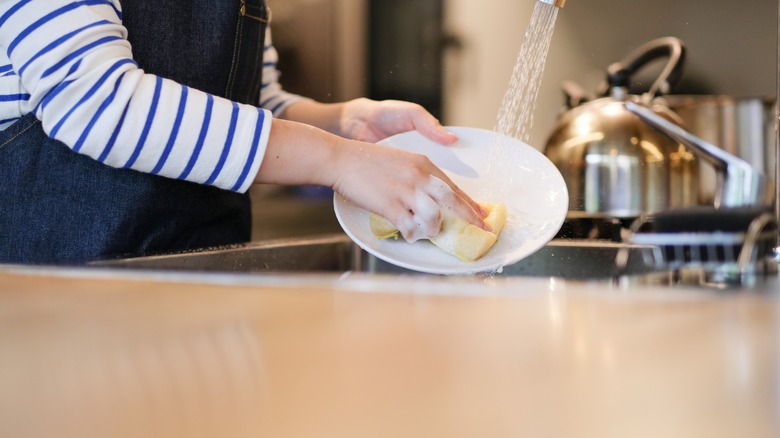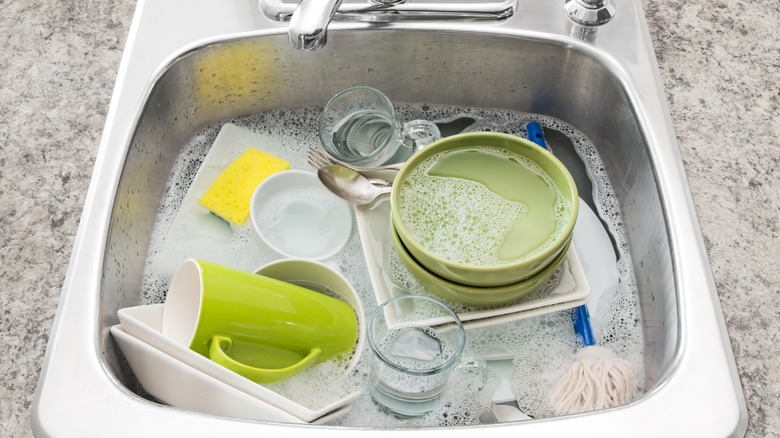The Old-School British Way Of Washing Dishes May Feel A Little Sus
Let's face it: despite sharing a common dominant language in English, the ocean of difference between American and British home cooks is wider than just the Atlantic. Across the pond, they call potato chips "crisps," they put tuna in their baked (or "jacket") potatoes, and famous English celebs like George Harrison have endorsed sandwiches starring Marmite, an ingredient largely foreign and unpalatable to most Yank tongues. But the differences between the goings-on in British and American kitchens aren't limited to menu items.
Recently, social media users became aware of the "British" method for washing dishes, which involves dunking your cups, plates, and utensils in a sink or basin of hot, soapy water, scrubbing them with a sponge, dunking them back in the water, and putting them up to dry. There are two aspects of this procedure that blow the minds of non-Brits: washing all dishes in the same water, which ostensibly would become contaminated with food particles and scum over the length of the dishwashing, and not rinsing the soap off the dishes with clean water, which might leave nasty-tasting (and even dangerous?) detergent residue on the "clean" dishes. Of course, as is the case with most social media brouhahas — like the TikTok myth that Olive Garden breadsticks were actually hot dog buns — the truth of the matter is a little different and kind of complicated.
This controversial dishwashing method may not be all that widespread
To start with, it seems that the whole idea of British home cooks washing their dishes without rinsing them may be overblown: plenty of Brits polled on the topic admit to running their clean dishes under fresh water before drying. Just like anywhere else on Earth, it turns out that there's a wide range of customs in the U.K. when it comes to washing dishes, with some folks in fact using a sink or basin, while others wash their plates under running water ... or even turn to a modern dishwasher!
Anecdotally, it does seem like the method of keeping a single sink of hot water for dishwashing may be closely associated with older generations. They didn't necessarily have access to the same conveniences for heating water while growing up or were trying to conserve resources with this technique. Moreover, as this type of dishwashing has a long history behind it, we suspect that it's probably more effective than outraged TikTokers would have you believe.
As for if it's safe to eat off dishes that have been washed in common water and potentially not rinsed, expert answers vary. On one hand, some pros caution that not rinsing dishes could potentially facilitate the growth of bacteria, especially if the dishes are left out to dry instead of being toweled off. On the other hand, when's the last time you saw a headline about anyone being hospitalized as a result of eating leftover soap suds from high-risk dishwashing? Overall, it seems like there are too many variables at work to make any judgments about how anyone else is washing dishes.

